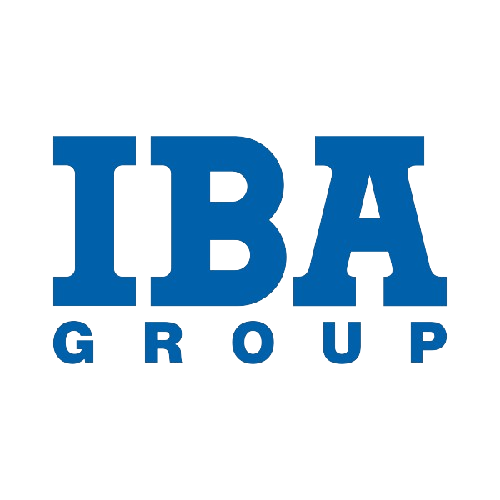Canada’s Deputy Prime Minister and Finance Minister Chrystia Freeland recently announced several new policies aimed at enhancing affordability for newcomer homeowners on April 11, 2024. These initiatives are specifically tailored to assist both first-time homebuyers and existing homeowners.
Given the recent regulations imposed on foreign homebuyers by the federal government, newcomers may be curious about the current landscape of homeownership affordability in Canada. They may be eager to determine their eligibility for the newly introduced housing affordability policies. This article aims to provide insights into Canada’s newcomer homeownership affordability policies, empowering individuals to navigate the process of purchasing their first home in the country.
What are the restrictions on foreign home buyers in Canada?
Canada adopted a prohibition on the Purchase of Residential Property by the Non-Canadians Act at the beginning of January 1, 2023.
A government policy restricts non-Canadians from purchasing houses or buildings with three or fewer dwelling units, including semi-detached houses and condominium units. This policy was recently extended until January 1, 2027.
In particular, the non-Canadians are individuals who don’t hold Canadian citizenship or permanent resident status.
There are situations where non-Canadians, such as foreign workers or international students, might qualify for purchasing a residential property in Canada.
Canada’s Newcomer Homeownership Affordability Policies
Increased Withdrawal Limitations For Registered Retirement Savings Plan
First-time home buyers in Canada can withdraw more money from their RRSP or Registered Retirement Savings Plan starting April 16, 2024, to use it for a downpayment.
In particular, they will be able to withdraw $60,000 to put towards a down payment on the property they are purchasing. This is an increase of $25,000 from the previous withdrawal limit.
This implies that prior to April 16, first-time house buyers in Canada will be able to withdraw $35,000 from their RRSP.
Minister Freeland has stated that the Tax-Free First Home Savings Account [FHSA] and increased RRSP withdrawal limits may be combined. Together, these programs will provide younger Canadians with greater resources to save for their first house or ease their financial burden.
Canada’s Tax-Free FHSA
Canada initiated a new savings account called an FHSA in 2022, which was tax-free. This account enables Canadian citizens and PRs to save around $8,000 yearly to buy their first home.
This account is special as it permits eligible account holders to gain various tax-related benefits along with saving money to purchase their first home in Canada. The benefits include:
- Investments to an FHSA are tax-deductible. Also, they deliver account holders with tax rebates;
- Growth of all money invested in an FHSA is tax-free;
- When an account holder decides to withdraw from their FHSA for their first home down payment, the money taken out of this account does not incur taxes.
Notably, Tax-free FHSAs have a lifetime contribution limit of $40,000.
What is the Extended RRSP Repayment Period
As per Canada’s government, individuals with RRSP will soon have more than twice as much time as before to begin their RRSP contributions after withdrawal to pay for the deposit on a home.
As per Minister Freeland, first-time home buyers will now have five years to begin repayments after withdrawing money from their RRSPs by December 31, 2025. Before this extension, individuals only had two years to begin repayment.
This extension will give account holders more flexibility when it comes to repaying their RRSP. It will also benefit newcomers in the short term and long term when it comes to planning their budget.
Extended Amortization Period for Mortgages
As per the government, Certain first-time homebuyers with insured mortgages will have 30 years to repay their mortgage starting August 1, 2024.
Notably, first-time homebuyers will qualify for this extended amortization period if they buy a freshly built house.
This will positively impact homeowners in Canada by lowering the monthly payments required to own their property.
According to Minister Freeland, this will enable more young Canadians to afford to pay monthly mortgage on a new home.
Which, in turn, makes homeownership more accessible for younger Canadians throughout the nation. In addition, this will benefit newcomers to Canada who immigrate as young adults. This may also benefit newcomers who typically immigrate to Canada as young adults.
Modifications to the Canadian Mortgage Charter
This autumn, the government of Canada has amended its Canadian Mortgage Charter to benefit newcomers to Canada and other “vulnerable borrowers.” The following are the details of the update.
- Banks will now have to reach out to homeowners at least four to six months before their mortgage renewal date to inform them about the affordability options.
- Lenders must now contact borrowers up to 24 months ahead of a homeowner’s mortgage renewal to discuss options.
- Lenders must now give temporary amortization extensions for mortgage holders experiencing financial difficulties.
Notably, the government is making this one-time temporary extension measure permanent depending on a homeowner’s situation.
Minister Freeland also said that this new update may even be applicable to individuals with insured mortgages. Also, this change will not require any extra fees or include penalties.
In addition to the above, the Canadian government has declared the following Charter updates that will hold “vulnerable borrowers under financial strain”:
- Fees and costs that would otherwise be necessary for mortgage relief initiatives are waived;
- Waiving interest on interest when mortgage relief measures result in mortgage payments that do not cover interest payments on a loan;
- Insured mortgage holders will be immune from re-qualifying under the stress test when transferring lenders during the mortgage renewal;
- Borrowers can avoid negative amortization by making lump sum payments or selling their principal residence without prepayment penalties.
Homeowners should now have more time to plan for their financial future thanks to the extended notice periods enforced on banks and other lenders. Moreover, certain people are likely to have some fees and interest payments waived, and housing may now become cheaper due to extended amortization periods.
Move to Canada as a newcomer!
If you are interested in immigrating to Canada but have concerns about the process and pathways, feel free to connect with our experienced immigration experts for help at Meridian PR Immigrations or send us an email at enquiry@meridianprimmigrations.com









